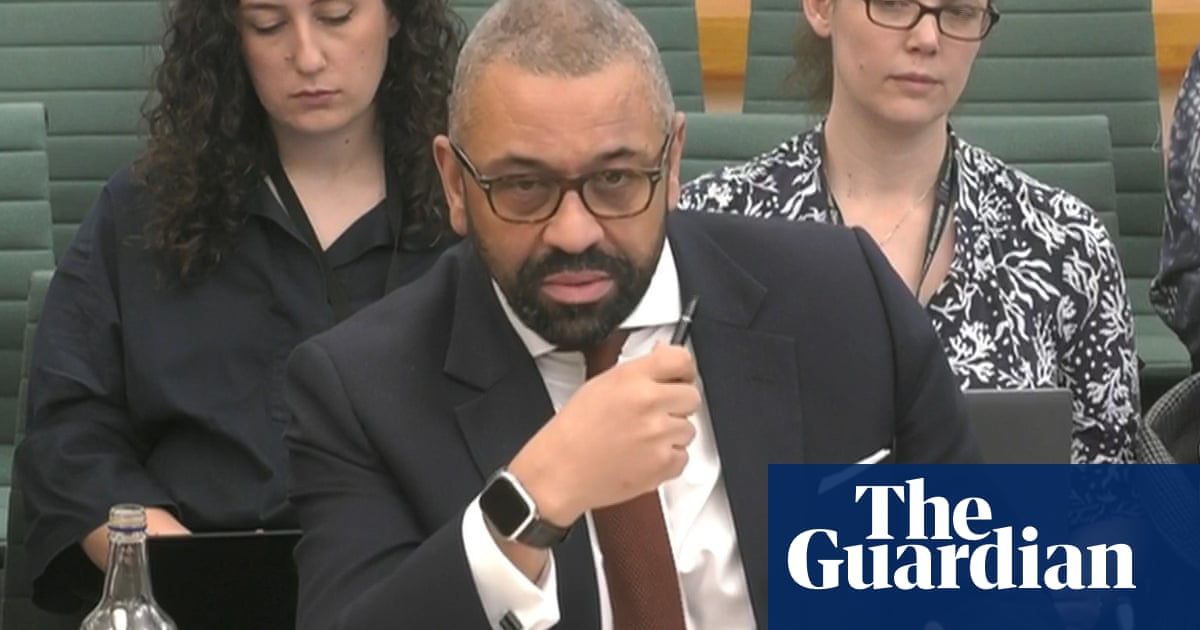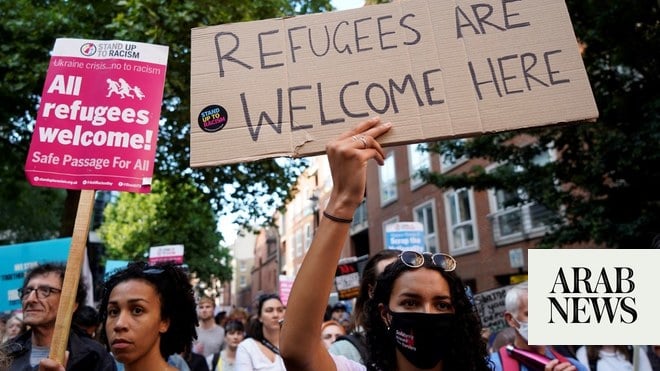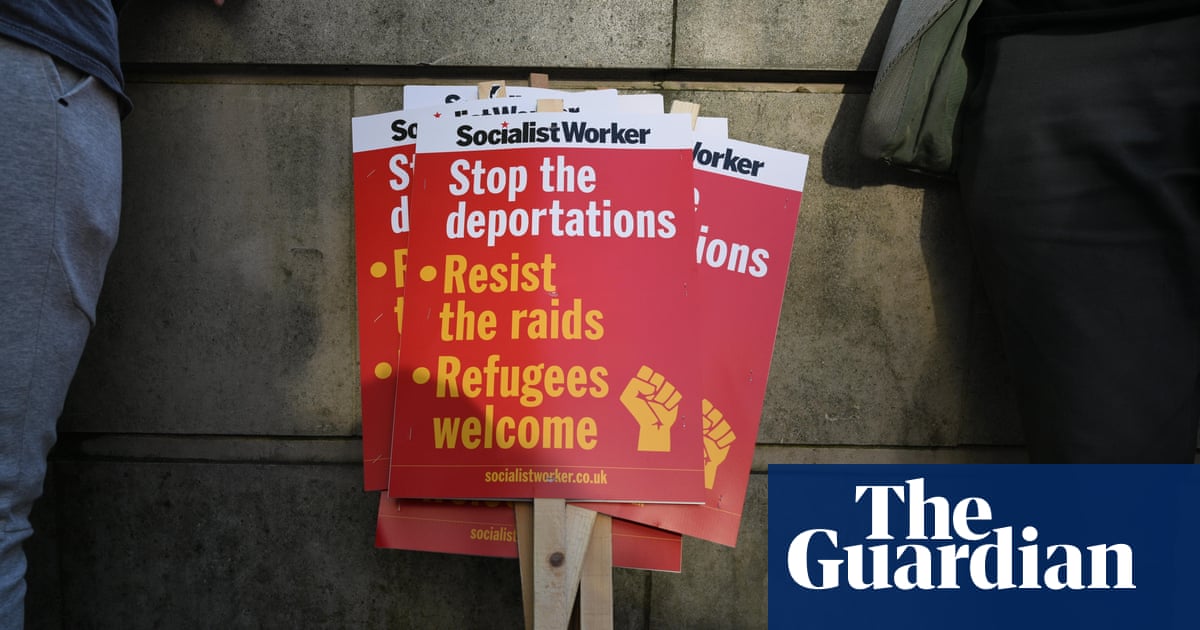
More than 30,000 asylum seekers are on bail and under the threat of deportation from the UK to Rwanda, the Home Office has disclosed, as James Cleverly insisted that the total backlog of 94,000 cases should instead be referred to as a queue.
A senior official has admitted for the first time that 33,085 people who arrived in the UK by irregular means such as small boats will not have their asylum claims examined while the government attempts to remove them from the UK.
The home secretary told MPs he could not say how many refugees might be sent to the authoritarian east African state. He also questioned whether the 94,000 outstanding claims still to be processed by the Home Office could be described as a backlog. Instead, he said, it should be referred to as a queue.
Cleverly’s comments came on Wednesday at his first appearance before the Commons home affairs select committee. He and senior civil servants were questioned about the government’s decision to criminalise asylum seekers who arrived in the UK after 20 July 2023 and send them to Rwanda under the Illegal Migration Act.
Asked by MPs how many people had been detained under the act, Dan Hobbs, the director general of the Home Office’s migration and borders group, told MPs: “My understanding is the last published stats from the 28th of December [show that] those arriving since the illegal migration act are 33,085.”
Charities have said that many of those bailed asylum seekers are disappearing from contact with the authorities because they have no hope of being granted asylum.
The chief executive of the Refugee Council, Enver Solomon, said: “We know people who have fled war and oppression in countries such as Afghanistan, Sudan, Syria and Iran are already avoiding contact with vital services and face being exploited and abused by those seeking to coerce and traffic them.
“The reality is that the government’s plans are causing huge distress to vulnerable people.”
Asked by MPs how many would be sent to Rwanda, Cleverly conceded that it could be “quite low” but said it remained “uncapped”.
“It may well be, if we’re successful with returns agreements, if circumstances in other countries change, it may well be that the figure [the UK sends to Rwanda] is quite low,” he said.
“It could be nearly at that figure, but the point is the number of people that we might send to Rwanda is entirely contingent on a whole set of other work that we’re doing.”
So far, the UK has paid the Rwandan government £240m under Rishi Sunak’s plan to “stop the boats”, but ministers are expect to pay an additional £50m this year and another £100m during 2025 and 2026.
No one who has made an unauthorised crossing has been removed, because of the legal challenges that resulted in the supreme court finding the scheme unlawful.
Cleverly questioned the committee chair, Diana Johnson, over whether the 94,062 asylum claims awaiting a decision should be described as a “backlog”.
“You keep describing it as a backlog – it’s the caseload. It’s a queue,” Cleverly said.
“I think your use of the word backlog implies something that I disagree with.
“There are a number of cases that we’re working through. At any given time someone who has arrived will be added to the caseload. By your definition if someone arrived yesterday that would be a backlog.”
Sunak had promised to “abolish” by the end of last year the “legacy” backlog of 92,601 claims made before the end of June 2022.
The Home Office was reprimanded by the UK Statistics Authority for claiming this goal had been achieved, when 4,537 of those applications were still outstanding.
It has also emerged that the archbishop of Canterbury and a former president of the supreme court are threatening to scupper the prime minister’s Rwanda plan in the Lords.
Justin Welby and Brenda Hale, who declared Boris Johnson’s attempt to prorogue parliament illegal, have together tabled amendments to the Rwanda bill that would delay and potentially derail the plans.
Their first amendment requires a ruling from the UN high commissioner for refugees (UNHCR) that Rwanda is safe for asylum seekers to be laid before parliament before migrants could be deported there.
It is understood to be the first Lords amendment ever laid by Lady Hale, who became a prominent figure in Westminster in 2019 when, as president of the supreme court, she declared as unlawful the then prime minister, Johnson’s attempt to prorogue parliament to secure his Brexit deal.












